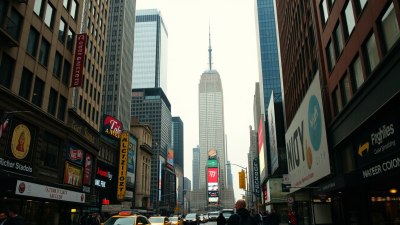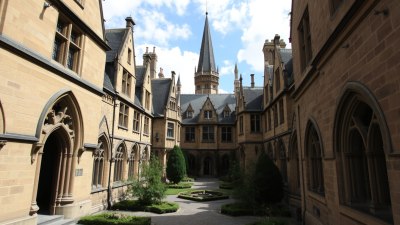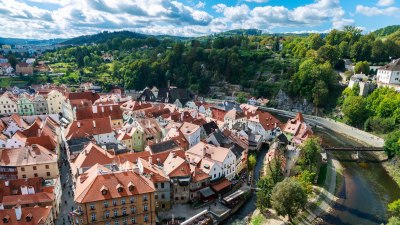You Can’t Pack What This City Will Take From You
Explore the unseen costs of living in a city, the emotional and relational price tags it carries.

Image created with Flux Schnell
Living in a bustling city often seems thrilling and glamorous, offering a vibrant lifestyle filled with opportunities, culture, and diversity. However, beneath the glittering surface lies an often unspoken truth: the toll that city life can take on an individual. It goes beyond financial costs or the physical space of a tiny apartment; the emotional, relational, and psychological impacts can be profound. As one navigates the complexities of urban life, it becomes evident that you can’t pack what this city will take from you.
The Allure of Urban Living
The initial allure of city living usually comes from the numerous attractions it promises. From world-renowned restaurants and exciting nightlife to career opportunities and cultural events, the city often feels like a treasure trove waiting to be explored. Young individuals and families alike are drawn to urban centers seeking a wealth of experiences, growth opportunities, and social interactions. However, this initial excitement may mask the cost of living in a city.
The Cost of Connection
In the quest for new experiences, many urban dwellers may inadvertently sacrifice meaningful connections. With a fast-paced lifestyle comes a tendency to prioritize work and success over friendships and familial relationships. It’s easy to lose touch with people as one's schedule becomes consumed by long hours, commutes, and the allure of city activities. City life often fosters transient relationships—people moving in and out—making it tough to form deep and lasting connections.
Emotional Toll of Urban Life
The emotional fabric of city living can be frayed by constant stimulation and competition. The exhilarating energy of streets filled with people can quickly morph into overstimulation, contributing to feelings of anxiety or loneliness. The quest to succeed in such a crowded environment can lead individuals to experience a host of emotions ranging from exhilaration to intimidation. The pressure to keep up can be overwhelming, leading to a decline in mental health and wellbeing.
The Relationships We Lose
One of the most significant losses that urban dwellers might face is the erosion of close relationships. As individuals become engrossed in their personal goals, they may neglect the very people who matter most. Friends may drift away or become merely acquaintances, while family gatherings become scarce. This loss can lead to feelings of isolation and disconnection, impacting one's sense of belonging and community.
Financial Considerations
Living in a big city often means facing the reality of high rent, cost of living, and other financial burdens. The salary one earns may seem substantial at first glance, yet its value diminishes when weighed against skyrocketing prices for housing, groceries, and services. With these financial obligations, individuals may find themselves working extra hours or multiple jobs, further isolating them from personal relationships and leisure time.
Impact on Personal Growth
The pursuit of growth is central for many city dwellers; however, with so many distractions, it can be hard to focus on personal development. Classes, hobbies, and additional education opportunities often get sidelined in favor of longer work hours or social obligations. The real question becomes: is this lifestyle enhancing your personal growth or hindering it? Over time, individuals may find themselves questioning their goals and aspirations, as the intensity of city life can often lead to burnout.
Disconnection from Nature
Another critical aspect to consider is the disconnection from nature that urban living often entails. Natural green spaces can be hard to come by in cities as concrete dominates the skyline. Limited access to parks and natural surroundings can impact overall health and wellbeing, leading to increased stress levels and decreased physical activity. The lack of nature can contribute to a sense of being trapped in a cycle of monotony, far removed from the grounding qualities that nature brings.
Finding Balance
Despite the costs associated with city living, there are ways to find balance. It's essential for city dwellers to actively create spaces for relaxation and connection amid the hustle and bustle. This can involve setting aside specific times for self-care or scheduling regular catch-ups with friends. Finding local parks or nature reserves to escape to can also help reintroduce that vital connection to the earth.
Reassessing Priorities
As one navigates this urban landscape, it's vital to reassess priorities continuously. Ask yourself, is this fast-paced lifestyle serving you? Are you sacrificing too many relationships for fleeting achievements? Open communication with loved ones about your experiences can go a long way in maintaining bonds that may otherwise fade. It's also worth contemplating what sacrifices are worth making and what deserves your time and energy.
Acceptance of Loss
Ultimately, acceptance plays a key role in reconciling the losses incurred from city living. Understand that some relationships may ebb and flow, and it's okay to grieve the connections or routines that may fade away. Professional growth often comes at a price, and recognizing this can empower individuals to make more conscious choices regarding their careers, relationships, and wellbeing.
Hope Amidst the Concrete
While cities can be overwhelming, they also harbor a unique blend of opportunities and experiences. Embracing the complexity of urban life isn't simple, but acknowledging the challenges can lead to greater self-awareness. Building a support network and finding ways to nourish personal connections can empower individuals to thrive amidst the chaos.
In conclusion, city life is filled with promise, but it comes with inherent challenges. It's crucial to recognize that one cannot pack or take away the emotional costs associated with urban living. The sacrifices made in terms of relationships, emotional wellbeing, and personal growth are vital to understand. However, by finding balance, reassessing priorities, and accepting the reality of loss, city dwellers can carve a meaningful and fulfilling life in the urban jungle. At the end of the day, it is not the city that defines us, but how we navigate the journey it provides.











